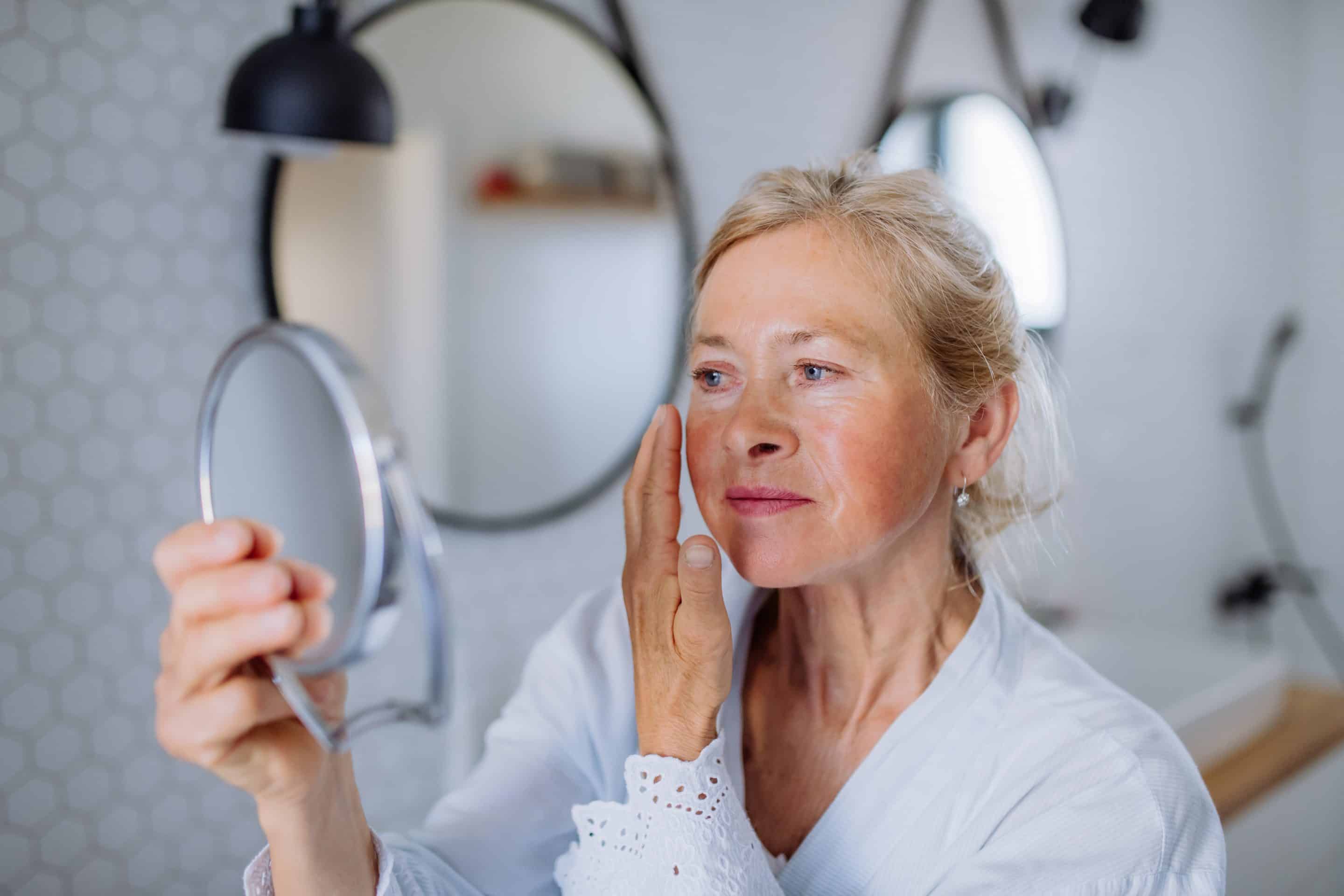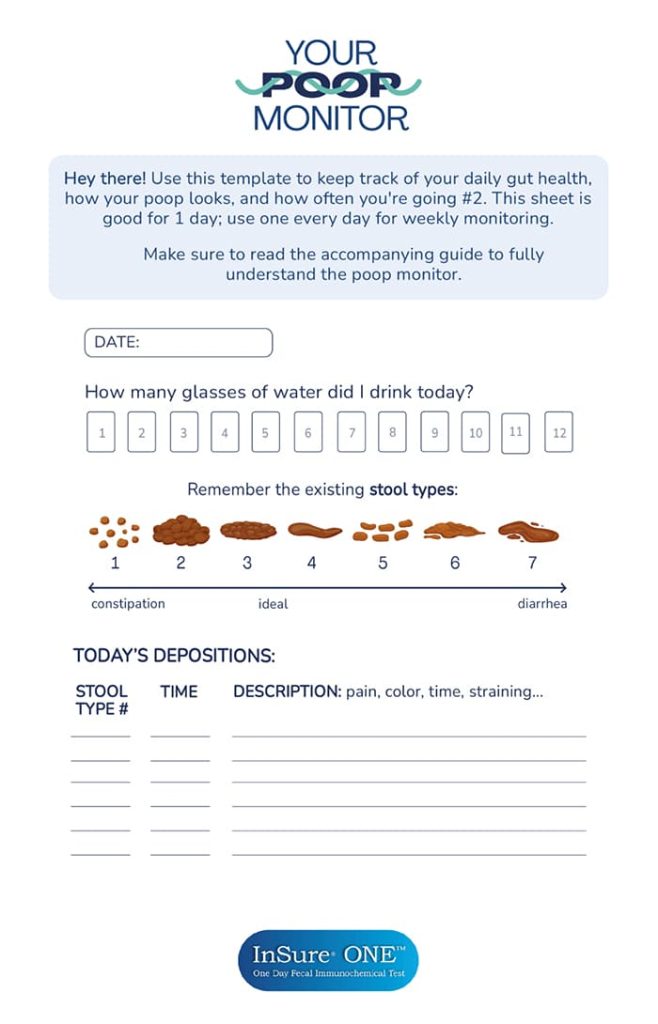Every night, you apply your skincare products to keep your skin looking its best. But over time, you notice digestive issues that were never a problem before. As we age, it’s natural to invest more in skincare, but have you ever paused to consider how these products might be affecting your internal health?
Skincare ingredients can be absorbed through the skin and affect other parts of the body, including your gut. As we explore the potential downsides of skincare ingredients for those aged 50 and older, it’s essential to understand how these products might impact not just your skin but your overall well-being.
How Skincare Ingredients Are Absorbed Through the Skin
Your skin, the body’s largest organ, acts as a barrier but also as a gateway. When you apply skincare products, the ingredients can penetrate through the skin layers and enter the bloodstream. This process is known as dermal absorption.
Once these substances are in your bloodstream, they circulate throughout your body, potentially affecting various systems. As we age, the skin’s permeability can increase, becoming more susceptible to the absorption of skincare ingredients. This enhanced absorption can have unintended consequences, particularly for gut health.
Common Skincare Ingredients and Their Potential Effects
Topical Antibiotics
These are often prescribed for skin issues like acne or rosacea. While they work well on the skin, they can also disrupt the balance of your gut microbiome. When absorbed through the skin, these antibiotics can enter your bloodstream and affect your gut, leading to problems like bloating, gas, or even more serious conditions like antibiotic-associated diarrhea.
Hormonal Creams
Hormonal creams, commonly used for menopause or hormonal imbalances, contain hormones like estrogen or progesterone that can be absorbed through the skin. Once in your bloodstream, these hormones can disrupt your gut’s natural balance, leading to bloating, indigestion, and changes in bowel habits. These creams can also worsen hormonal imbalances, making it harder to keep your gut healthy.
Essential Oils
Essential oils are praised for their natural benefits, but they can also have risks, especially with frequent or heavy use. When absorbed through the skin, these oils can enter your bloodstream and disrupt your gut’s natural balance. While small amounts are usually safe, overusing them or applying them to damaged skin can cause gut irritation or allergic reactions, leading to digestive discomfort.
Other Ingredients
Many skincare products contain chemicals like parabens, phthalates, and synthetic fragrances, such ingredients can disrupt your endocrine system and affect gut health. For instance, phthalates have been shown in in some studies to alter gut bacteria, potentially increasing the risk of inflammatory bowel conditions. Parabens and synthetic fragrances can also cause allergic reactions or sensitivities that may cause digestive problems.
The Gut-Skin Axis and Skincare
The gut-skin axis refers to the bidirectional relationship between the gut and skin, mediated by the immune system, hormones, and the microbiome. When the gut is healthy, it supports the skin’s health, and vice versa. However, when skincare ingredients disrupt this balance, it can lead to a cascade of health issues.
For instance, a study published in the Indian Journal of Dermatology found that patients with irritable bowel syndrome (IBS) often experience skin conditions like atopic dermatitis, suggesting a strong link between gut health and skin health. Another study highlighted how dysbiosis, an imbalance in the gut microbiome, can lead to conditions like acne or psoriasis.
When harmful ingredients are absorbed through the skin, they can disrupt gut bacteria, leading to an inflammatory response that affects both the gut and the skin. This gut-skin axis is a crucial factor to consider when choosing skincare products, especially for those who may already be experiencing changes in gut and skin health due to aging.
Healthier Alternatives for Gut and Skin Health:
- Natural Oils: Consider using natural oils like coconut oil, which are less likely to cause irritation and are easily absorbed by the skin without negatively impacting your gut health. They are gentle, moisturizing, and provide a natural barrier against environmental damage.
- Hypoallergenic Products: Choose hypoallergenic skincare products that are free from parabens, phthalates, and synthetic fragrances. These products minimize allergic reactions and sensitivities, thereby reducing the risk of gut irritation from absorbed chemicals.
- Topical Supplements: Consider using topical skincare products that contain vitamins and antioxidants like vitamin E, C, and coenzyme Q10. These ingredients support skin health without the harmful effects on your gut, and they provide added protection against environmental stressors.
Consult with a Professional
Always consult with a healthcare provider or dermatologist to choose products that are safe for your skin type and health conditions. Personalized advice can help you avoid ingredients that might disrupt your gut health while ensuring your skincare routine is both effective and safe. By being mindful of the ingredients in your skincare products, you can protect not just your skin but also your gut health, leading to overall better well-being.
References:
- Dahiya, D., & Nigam, P. S. (2023). Antibiotic-Therapy-Induced Gut Dysbiosis Affecting Gut Microbiota-Brain Axis and Cognition: Restoration by Intake of Probiotics and Synbiotics. International journal of molecular sciences, 24(4), 3074. https://doi.org/10.3390/ijms24043074https://www.researchgate.net/publication/361430716_Toxic_Effects_of_Paraben_and_its_Relevance_in_Cosmetics_A_Review
- Shivani Popli Goyal, Chakkaravarthi Saravanan,An insight into the critical role of gut microbiota in triggering the phthalate-induced toxicity and its mitigation using probiotics, Science of The Total Environment, Volume 904,2023, 166889, ISSN 0048-9697, https://doi.org/10.1016/j.scitotenv.2023.166889.
- İslamoǧlu, ZGizem & Unal, Mehmet & Küçük, Adem. (2019). Atopic Dermatitis in Adults and Irritable Bowel Syndrome: A Cross-sectional Study. Indian Journal of Dermatology. 64. 355. 10.4103/ijd.IJD_490_18.https://www.researchgate.net/publication/335574044_Atopic_Dermatitis_in_Adults_and_Irritable_Bowel_Syndrome_A_Cross-sectional_Study
- De Pessemier, B., Grine, L., Debaere, M., Maes, A., Paetzold, B., & Callewaert, C. (2021). Gut-Skin Axis: Current Knowledge of the Interrelationship between Microbial Dysbiosis and Skin Conditions. Microorganisms, 9(2), 353. https://doi.org/10.3390/microorganisms9020353

